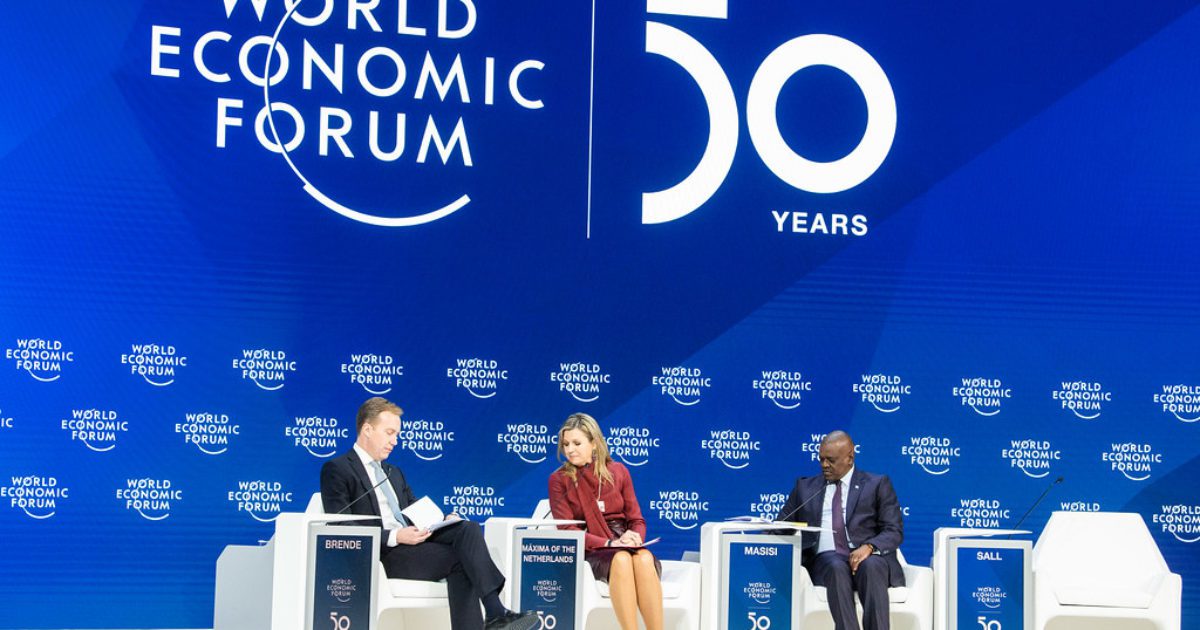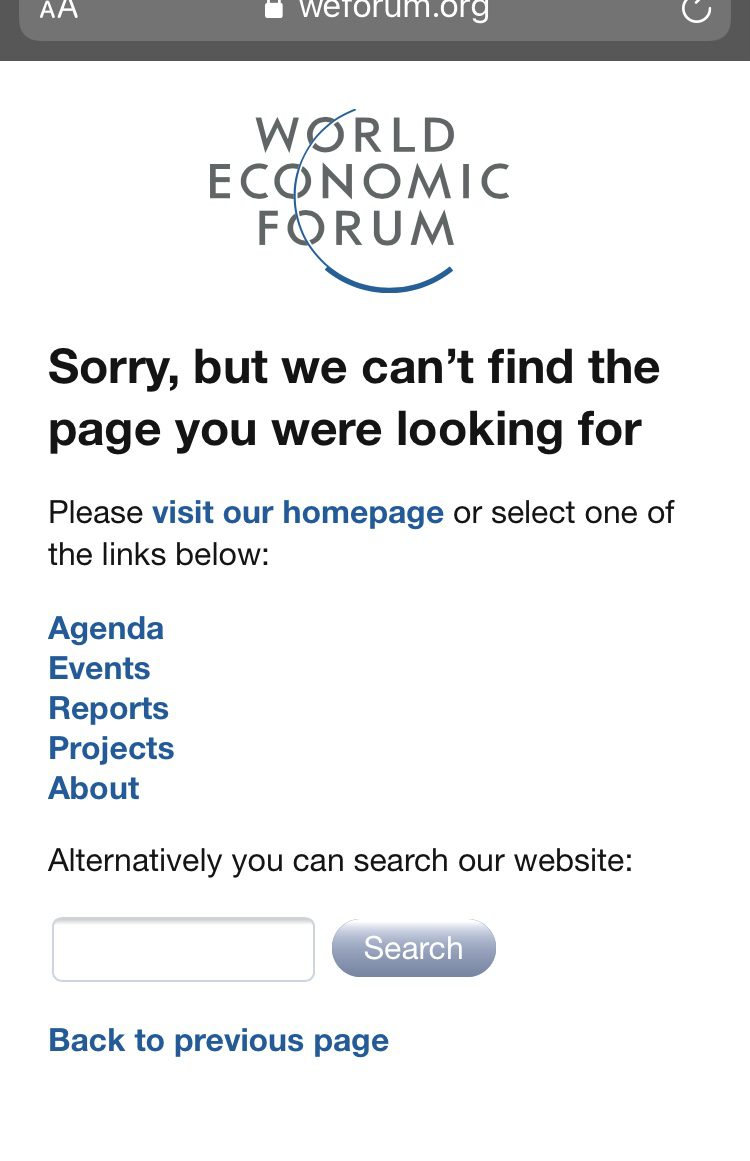The World Economic Forum (WEF) has removed a 2018 article by the Sri Lankan Prime Minister on Tuesday touting a plan to make the country “rich by 2025.”
The article’s removal comes on the heels of the total collapse of the Sri Lankan government, where protestors stormed the presidential palace and the prime minister announced his resignation.
In the now-deleted article titled, “This is how I will make my country rich by 2025,” Prime Minister Ranil Wickremesinghe laid out his vision to “strategically position Sri Lanka as the hub of the Indian Ocean” in part by imposing WEF-sponsored environmental initiatives to address “climate change.”
Lol they deleted it pic.twitter.com/ev9CRTo7hS
— Jack Poso 🇺🇸 (@JackPosobiec) July 12, 2022
Infowars reported:
Wickremesinghe cited the WEF as an organization that will help him achieve his goals.
“The 27th World Economic Forum on ASEAN in Ha Noi, Viet Nam, provides me with the opportunity to showcase the landmark changes in Sri Lanka and our growing economic interconnection with the ASEAN region and beyond,” he concluded. “It will build upon the foundations of the historical and cultural ties that have existed for many centuries, and which bind our people irrevocably.”
Notably, Sri Lankan President Gotabaya Rajapaksa also promised in 2019 to transition the country’s farmers to organic agriculture over 10 years, following up in April 2021 by imposing a nationwide ban on fertilizers and pesticides and ordering the country’s 2 million farmers to go organic.
Those ambitions faded into oblivion as Sri Lanka's president fled the country and Prime Minister Wickremesinghe resigned after the people revolted and stormed their residences.
To ensure the continuation of the Government including the safety of all citizens I accept the best recommendation of the Party Leaders today, to make way for an All-Party Government.
To facilitate this I will resign as Prime Minister.
— Ranil Wickremesinghe (@RW_UNP) July 9, 2022
sri lanka president flees the country on a navy ship pic.twitter.com/cM1ID05bAg
— ian bremmer (@ianbremmer) July 9, 2022
Sri Lanka's price for appeasing the global establishment with ESG (Environmental, Social, Governance) policies was the total collapse of the country.
Before Sri Lanka's regime fell, the South Asian country had one of the world's highest ESG scores.
The ESG score is a new metric used by the globalist elite to measure how “sustainable” and socially “equitable” nations and companies are.
Sri Lanka should serve as a warning when obeying the globalists' "green" initiatives.
“A food, energy, and financial crisis have brought down Sri Lanka’s government. But the underlying cause is the fact that the nation’s political leaders had fallen under the spell of green elites peddling ‘ESG’ and banning modern fertilizers,” wrote environmental activist Michael Shellenberger.
"The enviros got what they wanted. Sri Lanka has a near-perfect ESG score (98) which is higher than Sweden (96) or the United States (51). It also can’t feed its people and it has run out of nearly everything." https://t.co/Tehr551OMA
— Tom Nelson (@tan123) July 11, 2022
"A chemical fertilizer ban in 2021, part of an initiative to cut nitrogen waste and implement greener farming practices, drastically reduced crop yields and damaged Sri Lanka’s trade balance," the Daily Caller explained.
Sri Lanka has been wracked with poverty, inflation and fuel shortages on a massive scale, with the Prime Minister declaring Tuesday that the country has gone “bankrupt,” according to Business Insider. A ban on chemical fertilizers, implemented April 2021 in an effort to promote organic farming, proved the final straw after a string of missteps, decimating Sri Lanka’s primary source of income and forcing it into bankruptcy, experts told The Daily Caller News Foundation.
“Our economy has faced a complete collapse,” Prime Minister Ranil Wickremesinghe said on June 23, according to CNN.
The government lifted the fertilizer ban in November 2021, but the damage had already been done, Peter Earle, a former financial markets trader and economist at the American Institute for Economic Research, told TheDCNF.
"These ESG initiatives like banning fertilizer caused the nation’s rice crop to fall by 20% in the first six months, crop productions to drop by 40-50%, and inflation to explode to 54%, which led 500,000 Sri Lankans into poverty," Infowars noted.
Despite Sri Lanka's total collapse, other nations are attempting to enforce the same failed WEF-climate policies.
The Sri Lankan collapse stems from a fertilizer reduction policy. Just like in the 🇳🇱, WEF politicians are purposely putting the food supply on the line for seemingly no reason. Justin Trudeau is even doing it in Canada, and the media is keeping it quiet: https://t.co/UyGbj6baEX
— Keean Bexte (@TheRealKeean) July 11, 2022




Join the conversation!
Please share your thoughts about this article below. We value your opinions, and would love to see you add to the discussion!